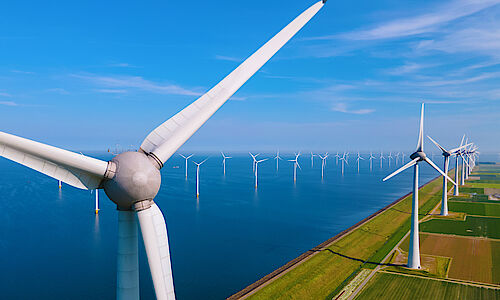News & Academies' activities
Royal Swedish Academy of Science to host public EASAC Workshop on "Renewables - systems and storage" on 19/20 September 2013
EASAC study of breakthroughs in sustainable energy supply and consumption by 2050, and outlook towards the end of the century.
We wish to invite you to participate in a two day workshop at the Royal Swedish Academy of Science in Stockholm on the topic of breakthroughs in energy systems and technologies towards the year 2050 with the theme
Renewables, systems and storage
This is an event organized through the European Academies Science Advisory Council (http://www.easac.eu/home.html), which gives scientific advice and input to policy makers in the European Union. The Royal Swedish Academy of Sciences has taken the lead in organizing hearings on the topic of sustainable energy systems towards the year 2050. The topic of sustainable energy systems has been divided into topics related to nuclear technology (fission and fusion) and renewable energy technologies and systems.
A first workshop was held on nuclear technologies in Greifswald in April, 2013, and the second workshop on renewables will be held at the Royal Academy of Sciences in Stockholm in September 2013, and organized by Professor Olle Inganäs, Professor Villy Sundström and Professor Eva-Mari Aro.
The workshop will focus on potential breakthroughs in renewable energy conversion technologies over the period to 2050 and beyond. For some of these technologies, which provide intermittent electrical power (such as wind and photovoltaic solar power), problems of electrical system balance and need for storage can be significant. Renewables also include the direct conversion of sunlight into solar fuels where storage is part of the solution, and which also are solutions for very different problems. But many forms of renewable energy are found, and breakthroughs can be arriving from many sectors.
The focus of the workshop is to develop views of the need and possibilities for scientific and technological breakthroughs for sustainable energy by 2050 and beyond, thus to influence decision makers in technology policy and research priorities.
The EASAC study is chaired by Professor Lennart Bengtsson and Professor Elisabeth Rachlew and a steering committee with 18 members is selected from the various European academies.
To access the program of the workshop please have a look ot the website of the Royal Swedish Academy: Link to KVA website.
Workshop presentations
Welcome: Estimated energy from renewables
Biomass:
Klaas J. Hellingwerf: Cyanovacteria
Per Gardeström: Energy and green chamicals from forest products
Sascha Rexroth: Rational design of cyanobacteria for hydrogen production
Photosynthesis:
Vincent Artero: Molecular Science for Artificial Photosynthesis
Daniel Nocera: Articifial Leaf (part I, part II)
Erwin Reisner: Solar energy conversion inspired by nature
Stenbjörn Styring: Artificial photosynthesis for solar fuels
Photovoltaic:
Frank Dimroth: PV research for the support of European energy transition
Anders Hagfeldt: Hybrid inorganic-organic photovoltaics, HI-OPV
Magnus Borgström: Nanowires with promise for high efficiency photovoltaics
Eli Yablonovitch: Photovoltaics, high efficiency together with low cost
Rene Janssen: Efficient polymer solar cells and first step beyond that
Renewables:
Karl Leo: Recent progress in organic solar cells
Paul Alivisatos: Nanoscience and the future of the Global Carbon Cycle
Markus Anonietti: Lactid Acid, Ionic Liquids and Energy Materials
Storage:
Michel Armand: Electrochemical energy storage, activity on all fronts
Thomas Hamacher: Integration of renewable energies
Hermann-Josef Wagner: Wind Energy Systems - Present Status and Ecobalances
Systems:
Godfrey Boyle: Renewables - Intensive Energy Scenarios for the UK
Ujjval Vyas: The importance of failure in renewable energy planning (part I, part II)
Sture Larsson: Requirements for system adaptation to intermittent generation
back to overview































